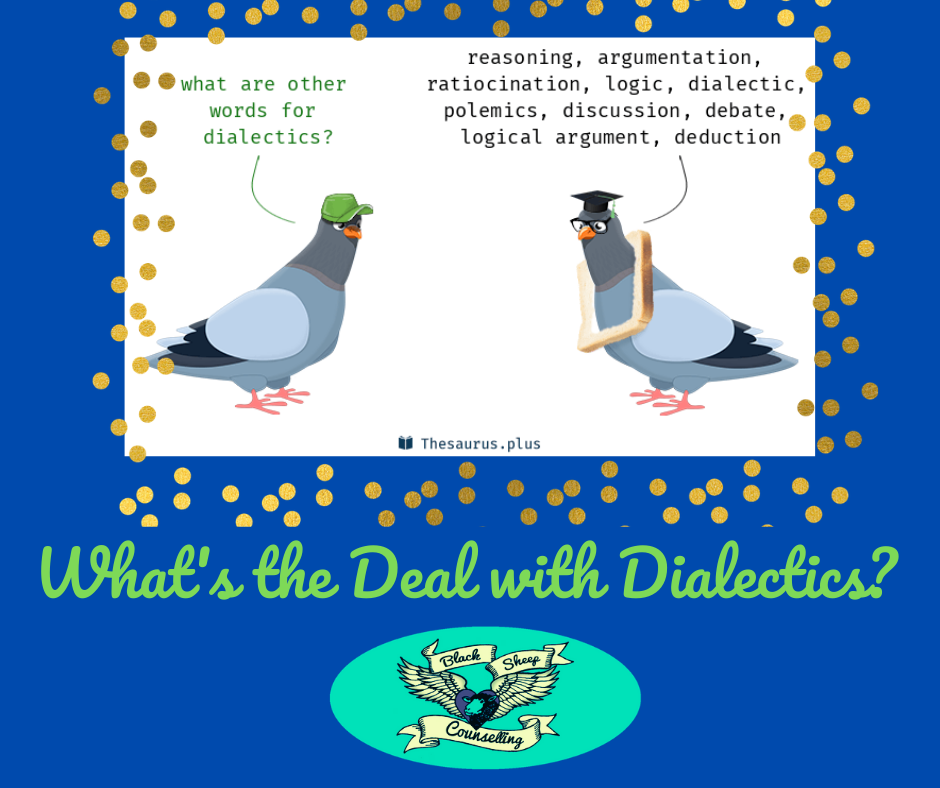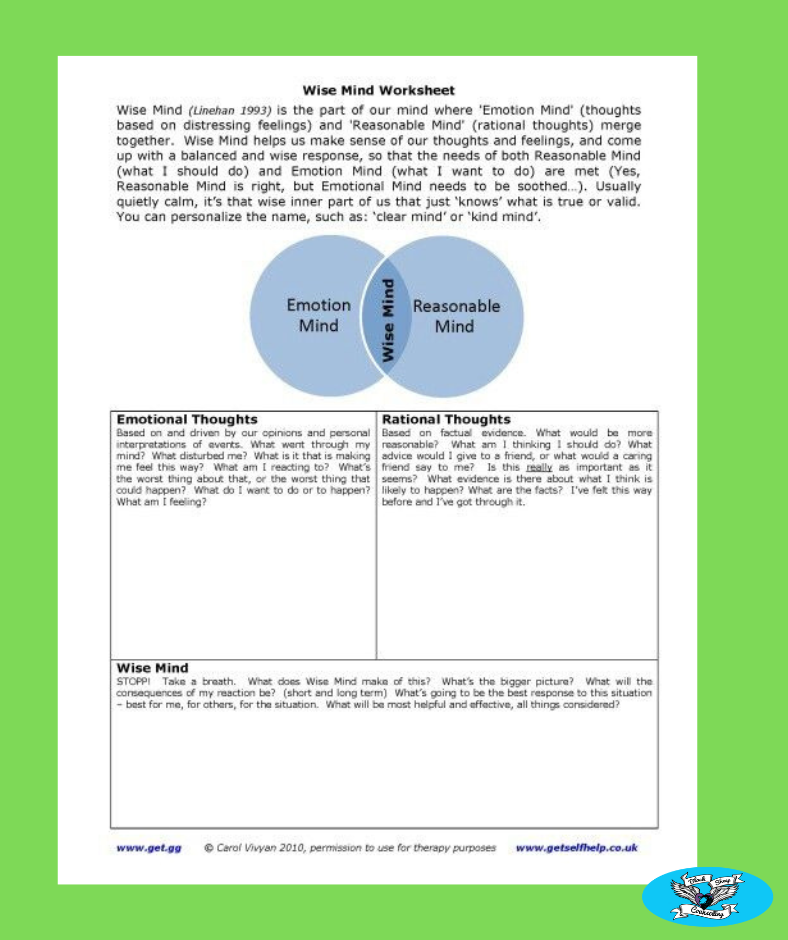Dialectics

Dialectics Defined:
Webster: “a discussion and reasoning by dialogue as a method of investigation”
Collins: “a method of reasoning and reaching conclusions by considering theories and ideas together with one that contradict them”
Dialectic thinking is a synthesis of two or more seemingly opposite experiences that allows space for black and white thinking and all of the glorious shades of grey in between.
Dialectic thinking (DT) assists in creating space for multiple thoughts, perspectives, feelings, and experiences simultaneously. DT opens up new possibilities and is necessary for helping to challenge cognitive distortions such as losing the stuck-ness that occurs with the emotional variety of all-or-nothing thinking (the difference between making a mistake or feeling like you are a mistake).
DT aims to help one feel a full range of emotions while moving through them more easily with greater flexibility and adaptability (mindfulness). DT is an effective way to cope with life’s struggles and disappointments and help foster resiliency.
Dialectical Behavioural Therapy
Dialectical Behavioural Therapy (DBT) was created by Marsha Linehan to assist with keeping chronically suicidal and self-injurious clients out of hospital and in-patient settings (where maladaptive coping mechanisms are often reinforced). Many community-based counselling agencies and practitioners use DBT-informed* curriculum and approaches because its treatment approaches are widely available, and offer relatively easy-to-comprehend psychoeducation and the fostering of adaptive new coping tools.
DBT offers much in the way of free resources (a quick google search will bring up descriptions of concepts and downloadable worksheets) which makes the model accessible to anyone with Wi-Fi. DBT uses acronyms to describe many of their concepts, which also make them easy to learn, remember, and implement as a means of managing distress tolerance. DBT is extremely useful as a foundation to deeper trauma work. An example of an acronym-based tool is the DBT Interpersonal Effectiveness Skills concept referred to as DEAR MAN. DEAR MAN is used when one may be facing a situation where they need to be assertive rather than aggressive or disagreeable.
DEAR MAN:
Describe. As objectively as possible (without bias or judgment) the relational situation
Express. Express how you are affected by this situation. How does this situation make you feel. Focus on framing this as an “I” statement.
Assert. Make your thoughts and expectations known. What do you think about this situation.
Reinforce. Explain why you think the way you do and express why you want what you want. Share with the other person how what you want will benefit you.
Mindful. Be mindful about how your feelings can influence your thoughts and how to employ effective communication skills. Be sure not to invalidate others or let your emotions fuel your participation in the conversation.
Appear Confident. Remember that your presentation is important. Elements such as body language and tone greatly impact how your message is being received. How might you embody confidence while keeping your message clear and succinct while avoiding being confrontational?
Negotiate. Sometimes with emotionally charged situations, there will need to be a compromise. In most situations, compromise is necessary and possible. How might you use compromise or negotiate terms in which both parties benefit?
Another useful tool from DBT is Wise Mind which helps discern the difference between thoughts versus reality and opinions versus facts.

The DEAR MAN and Wise Mind are just two examples of DBT tools.
Why Dialectics are Useful: The Importance of Feeling ALL Emotions
When the emotions people express match the emotions they felt (whether pleasant or unpleasant) they reported greater life satisfaction and fewer depressive symptoms – they were happier.
So if you feel anger and you act angry, you’re also happier.
Why? While your brain may not want to feel those feelings, your heart definitely does. And when you live in alignment with your heart, you can truly be happy.
Feeling your feelings (any feelings) = true happiness.
If you are struggling with effective communication or distress tolerance or want tangible tools for reality-checking and working through issues of struggle, you might find value in DT and DBT.

FYI:
*Genuine DBT therapy is much more than skills training. DBT requires a massive commitment of time for both client and therapist. DBT is a comprehensive, protocol-driven treatment that requires years of clinician training, membership on a weekly DBT consultation team, and regular contact between the DBT practitioner and client in-between sessions. In addition to regular therapy sessions, clients are required to do homework/charting outside of the individual, group, and phone counselling sessions. Finding a practitioner that offers DBT to fidelity is no easy feat. Most therapists and agencies offer DBT-informed approaches and curriculum but cannot ethically refer to themselves as “DBT therapists”.
